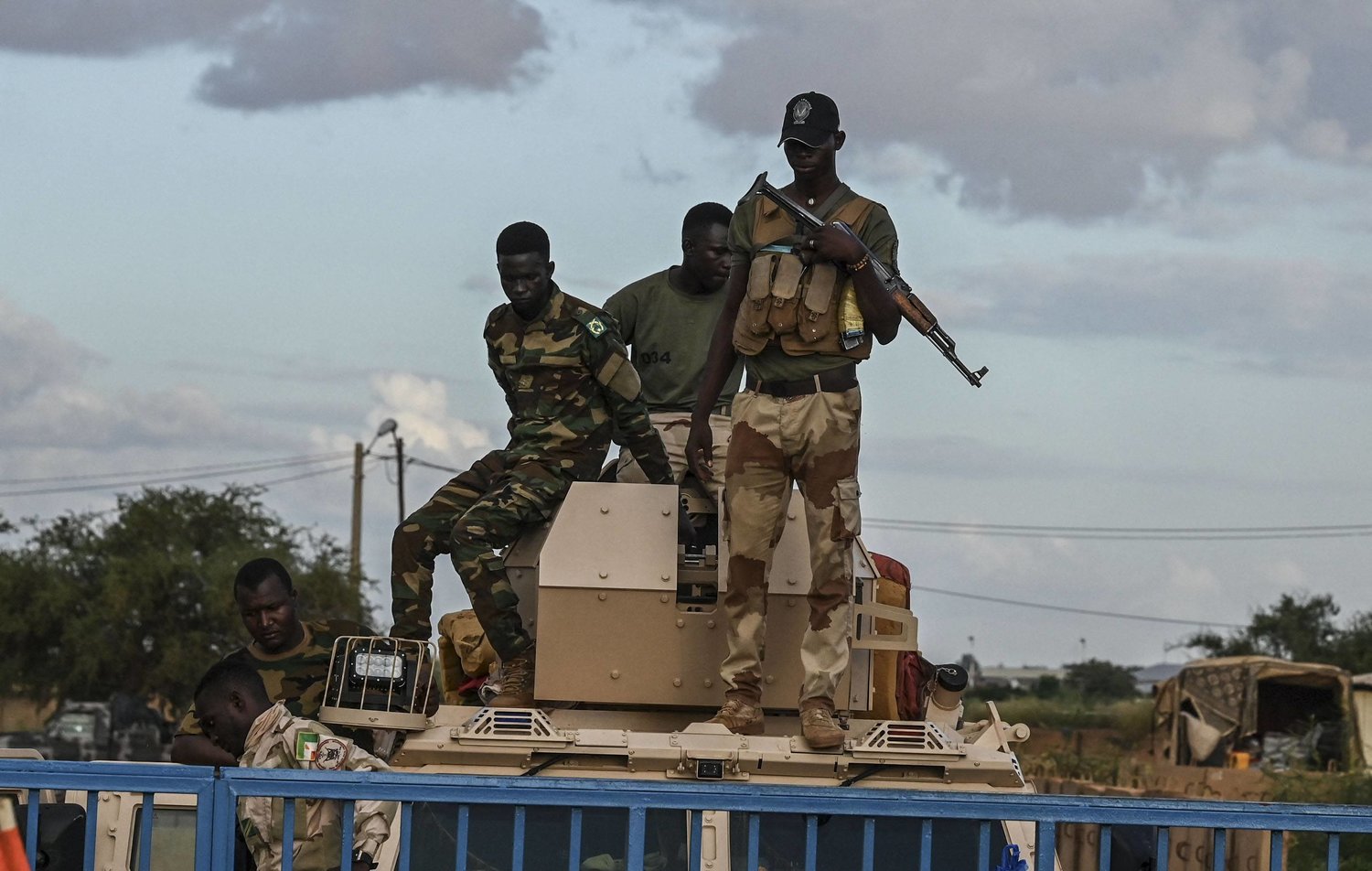Terrorist activity in Niger has been a recurring issue, particularly considering the heightened operations of terrorist organizations in the Sahel region. However, a noticeable surge in violence linked to these organizations has been witnessed in Niger during the last two months, specifically following the occurrence of a military coup. On July 26th, the nation witnessed a significant event that culminated in the ousting of President Mohamed Bazoum and the establishment of a transitional authority.
The political upheaval caused by the military coup in Niger has resulted in significant transformations, particularly in terms of security. Consequently, there has been a surge in violence in the western region of the country, which is exacerbated by its vulnerable proximity to Mali and Burkina Faso. This area is experiencing a growing presence of terrorist organizations, further exacerbating the security challenges faced by Niger.
In addition to the surge in violence associated with terrorist organizations, operations against military forces has increased. A terrorist act perpetrated by extremists in the western region of the nation on October 4, resulted in the tragic loss of 29 lives with numerous others injured. This attack, reported by the Ministry of Defense, stands as the most extensive and brutal assault since the occurrence of the military coup.
Reasons Behind the Rise in Terrorism
In light of the escalating violence in western Niger of late, several factors can be identified that contribute to the exacerbation of violence in the coming period. Among these factors are the following:
1- The tumultuous circumstances after the coup: The turbulent circumstances that Niger has experienced since the coup, considering the tensions between the transitional authority and Niger’s neighbors, particularly with “ECOWAS” group, the looming possibility of a military intervention, as well as the strained relations with certain global powers, have all defined this as a military coup, most notably France. The transitional authority has called for the withdrawal of its forces, presenting an opening for terrorist organizations to bolster their operations.
These circumstances have led to a diversion of focus from counter-terrorism endeavors, particularly in the western region of the nation. This area is more prone to experiencing security turmoil, unlike the southeastern part of the country where the “Boko Haram” group is actively operating.
2- The vulnerability of the tri-border area encompassing Mali, Burkina Faso, and Niger has rendered it a breeding ground for terrorist groups in recent years. The inadequacy of border security measures has facilitated the seamless movement of these extremist elements across the three nations, particularly as these organizations continue to expand their influence. Notably, Mali and Burkina Faso have experienced a surge in terrorist activities, surpassing the level observed in Niger.
Given the aspirations of terrorist organizations, particularly those associated with Al-Qaeda and ISIS, to extend their control over extensive territories within the three nations, there is a high likelihood of escalating levels of aggression in the foreseeable future.
Terrorist organizations have demonstrated their ability to adjust to security conditions by employing motorcycle attack in their operations. This was seen in an assault on the Nigerian army, resulting in the tragic loss of 29 lives. Media reports indicate that over 100 terrorist operatives were involved in this incident, highlighting their proficiency in navigating and traversing the complex terrain of the triple borders.
3- Potential implications of the power vacuum after the French retreat: In the aftermath of the military coup in Niger, the transitional authority adopted a firm position against France, citing interference in internal matters, amidst resistance to the coup. Consequently, the authority insisted on the withdrawal of French troops, a request initially declined by Paris, until it eventually acquiesced and agreed to withdraw its military forces.
While there are differences between France’s approach to counter-terrorism and the situation in Niger, with France being more actively engaged in counter-terrorism operations, it is important to note the effectiveness of French forces in the Sahel region. However, it is crucial to consider that the withdrawal of French forces could potentially result in a vacuum.
This void may encompass the realm of training military personnel, engaging in reconnaissance missions, or offering assistance to Nigerian armed forces in counter-terrorism endeavors, particularly in terms of intelligence and data collection.
In this particular context, there is currently no discourse regarding the withdrawal of US personnel from Niger, despite the presence of a drone base. However, it is plausible that the military coup could potentially result in limitations on the activities carried out by these forces.
4-The conflict between IS and Al Qaeda in the Sahel region has been a source turmoil in recent years. This conflict emerged in March 2022, following the restructuring of ISIS groups in the Sahel region. The conflict has further intensified with the involvement of the “Support for Islam and Muslims” group, which is affiliated with Al-Qaeda, particularly in Mali and Burkina Faso. The risks of conflict have increased since the occurrence of the coup.
The two organizations’ groups frequently engage in operations aimed at targeting the army in Niger. These operations serve as a means to showcase their strength and gain control over the other. Such actions benefit each party in multiple ways, including the recruitment of new members and the attraction of elements from the opposing organization. This is particularly significant considering the dynamic nature of terrorist organizations, which often involves the movement of individuals between different groups.
It is anticipated that Niger will experience the consequences of the ongoing conflict between the two organizations in the foreseeable future. However, this outcome is contingent upon Niger’s capacity, under the present transitional administration, to foster unity and formulate an effective counterterrorism strategy for addressing extremist groups in western Niger.
5- Niger’s weak military capabilities have contributed significantly to the escalation of violence by terrorists. In addition to external factors, such as regional instability, the limited resources and capabilities of the Nigerian army pose a challenge in combating terrorism in the foreseeable future.
The Nigerian army suffers from a shortage of military personnel which hampers their ability to respond to terrorist threats. Furthermore, both the ground and air forces lack necessary equipment and training to engage in counterterrorism operations. This is evident from the country’s low ranking of 119 out of 145 on the “Global Fire Power” website, which assesses military capabilities worldwide.
Improving the military capabilities of Niger’s army is crucial in addressing the ongoing terrorist activities. By investing in personnel, equipment, and training, the country can enhance its ability to combat terrorism effectively and ensure the safety and security of its citizens.
Developing a response
Despite Niger’s signing of a defense agreement with the transitional authorities in Mali and Burkina Faso in September, as a demonstration of solidarity towards the transitional authority in Niger following the military coup. It is uncertain whether this agreement alone will adequately address the shared threat posed by terrorist organizations to all three nations.
The agreement primarily focuses on political matters, although it does acknowledge the need to address the shared threat of terrorism. However, Niger, Mali, and Burkina Faso must adopt a distinct approach to countering terrorism. This is particularly important considering that the three nations were previously part of the G5 alliance, which failed to effectively reduce the escalating operational activities of terrorist groups. Consequently, Mali withdrew from the alliance following a coup.


